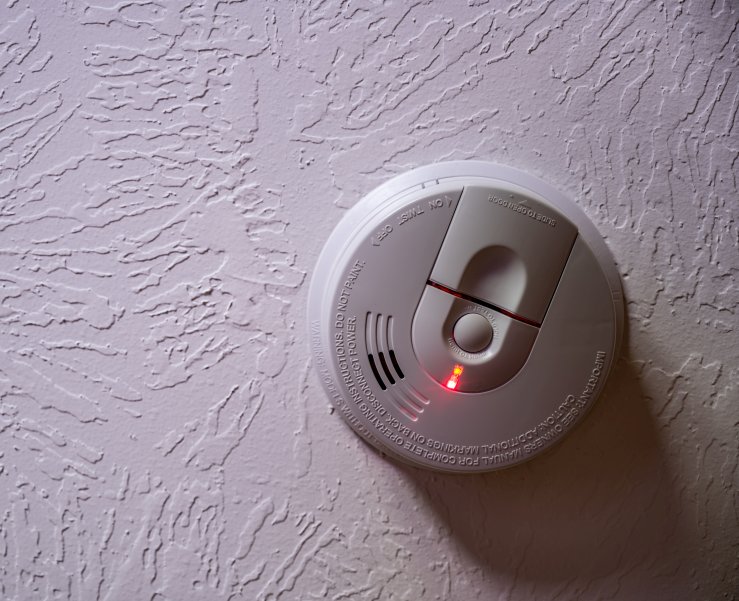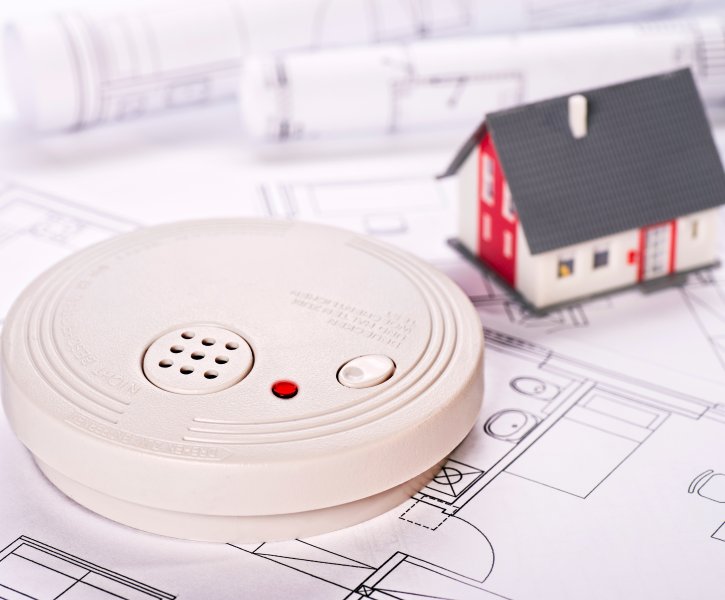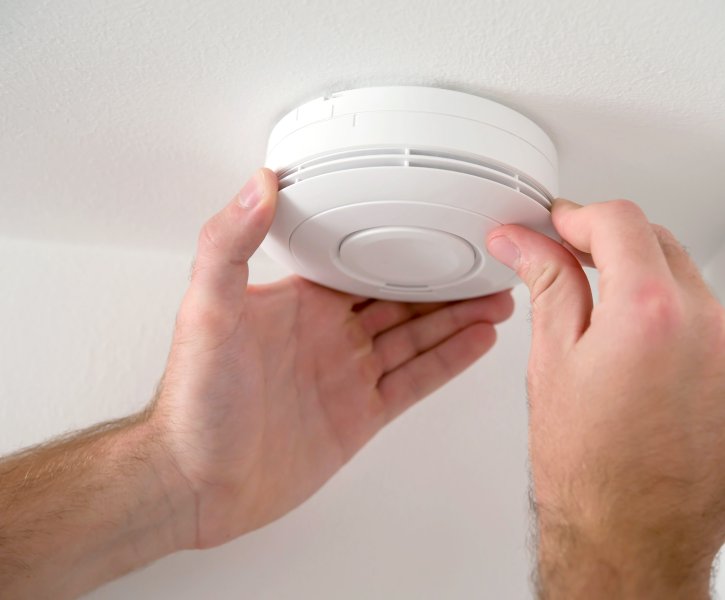Blog

November 27, 2024
"Why is my smoke alarm beeping?" is a common question that many homeowners face. Fire alarms are essential in keeping your home and loved ones safe, serving as the first defense against fires and carbon monoxide hazards. When that alarm beeps, it's more than just noise—it's your home's way of waving a red flag that says, "Pay attention!" Having the proper knowledge can be the key to preventing disasters and keeping everyone under your roof out of harm's way.
| Beeping Pattern | Likely Cause | Quick Solution |
|---|---|---|
| Single chirp every 30 seconds | Low battery | Replace battery immediately |
| 3 chirps every 30 seconds | End of life warning | Check manufacture date, replace unit |
| 4 quick beeps, pause, repeat | Smoke/fire detected | Check for fire, evacuate if necessary |
| Continuous chirping (hardwired units) | Power connection issue | Check circuit breaker and wiring |
| Random intermittent beeping | Dust/debris or humidity | Clean unit, check for moisture |
| Beeping at night only | Temperature/humidity changes | Check room temperature |
| Beeping despite new battery | Incorrect battery type or poor connection | Check battery type/installation, clean contacts |
Inspecting your fire alarm safely prevents further issues. Follow a straightforward approach to replace the dead battery in your smoke detector :
Turn off the power from the circuit breaker if it's a hard-wired smoke detector.
Detach the alarm from its mounting base.
Replace the backup battery and reattach the alarm wires if applicable.
After inserting a fresh smoke detector battery, remount the device.
For periodic cleaning, gently dust the unit to prevent false alarms caused by dirt or debris.

When selecting an access control system, consider the following :
If the Alarm Continues Beeping After Replacing the Battery or After Maintenance Efforts. Resolving persistent beeping issues without proper knowledge might lead to further complications. A professional can diagnose underlying issues efficiently, ensuring the alarm system is fully operational and reliable.
When Unsure About Handling Circuit Breakers or Alarm Wires. Working with electrical components can be hazardous if you lack the necessary expertise. Professionals have the skills and tools to handle these tasks safely, minimizing risks to you and the system.
If Your Smoke Detector Frequently Triggers False Alarms Despite Cleaning and Relocating. Repeated false alarms can show a deeper issue with the sensor or its settings. A trained expert can thoroughly evaluate and provide solutions tailored to your specific alarm system and environment.
When Upgrading Your Fire Alarm System or Integrating It With Other Safety Devices. Integrating new systems requires a comprehensive knowledge of the latest technologies and compatibility requirements. Professionals confirm that all components are synchronized effectively, enhancing the total safety of your premises.
Professionals offer expertise in inspecting and maintaining security systems, including security cameras, to establish optimal performance and safety compliance.
Strategic Placement of Smoke Alarms. To establish maximum coverage, install smoke alarms in key areas of your home, such as the kitchen, bedrooms, and hallways. Make sure they are mounted high on walls or ceilings as smoke rises.
Utilize Interconnected Systems. Consider using interconnected smoke alarm systems that communicate with each other, sounding alarms throughout the premises to provide a comprehensive alert in the event of a fire.
Routine Maintenance. Perform regular checks and maintenance on smoke alarms, including changing batteries every six months and cleaning the units to prevent false alarms caused by dust and debris accumulation.
Battery Backup. All alarms, especially hard-wired ones, should have a battery backup. This feature is essential during power outages to maintain uninterrupted protection.
Educate Occupants. Conduct fire drills and educate all household members on fire safety practices, including responding to alarms, locating exits, and using fire extinguishers.
Stay Informed on Technology. Keep up-to-date with advancements in smoke alarm technology and safety standards, which can provide enhanced security features and improved reliability.
Regular Testing. Test smoke alarms monthly to verify they are functioning correctly. This practice confirms the sensors and alert systems are operational and can detect potential hazards immediately.

Addressing a beeping alarm isn’t just about silencing an annoying sound—it's about safeguarding what matters most. Imagine the peace of mind knowing your fire alarms and security systems are not only meeting but exceeding safety standards.
At HSI Security, we transform that peace of mind into reality. Our dedicated team delivers cutting-edge solutions tailored to your needs, making sure your home or business is always protected. Don’t leave your safety to chance; let us equip you with the reliability and security you deserve.
Take action now before an unexpected emergency puts you at risk. Contact HSI Security today and step into a world where safety comes first. Your peace of mind is just a consultation away!
JULY 03, 2024
JULY 03, 2024
JULY 03, 2024